154. Embedded C++, Cpp2, September mailing
Media
Video
Podcast
Powered by RedCircle
CppCon keynote: Bjarne Stroustrup - C++ in constrained environments
- Many systems have constraints that dominate the design – limited memory, limited CPU speed, extreme reliability requirements, limited latency, zero or limited downtime, long life (decades).
- When teaching C++, these constraints are usually ignored.
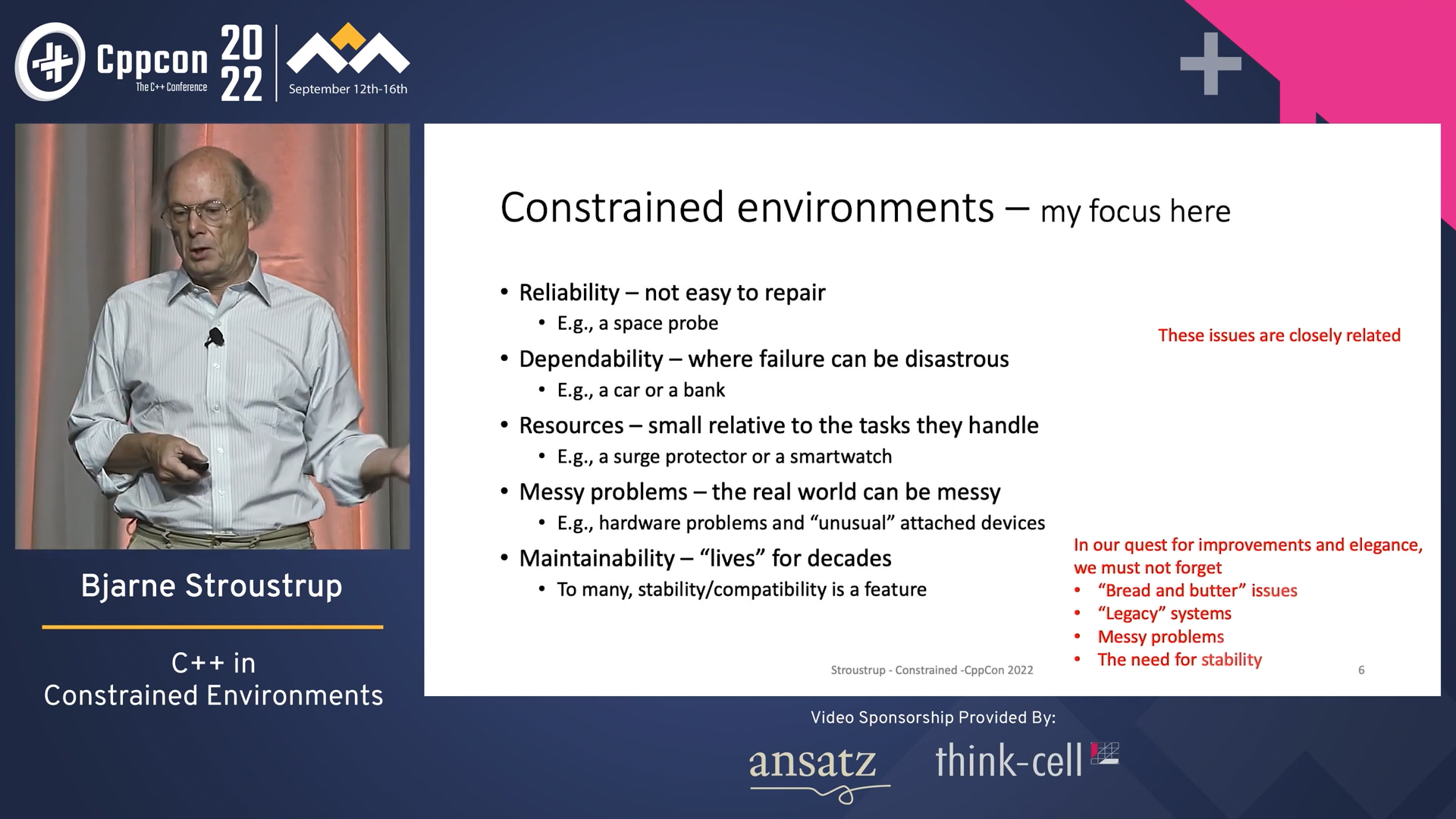
- There is no “silver bullet” – need to use several approaches in larger systems.
- Targeting C++20 but usable from C++11.
- Some people are stuck with C++98 (“That really shouldn’t happen these days”).
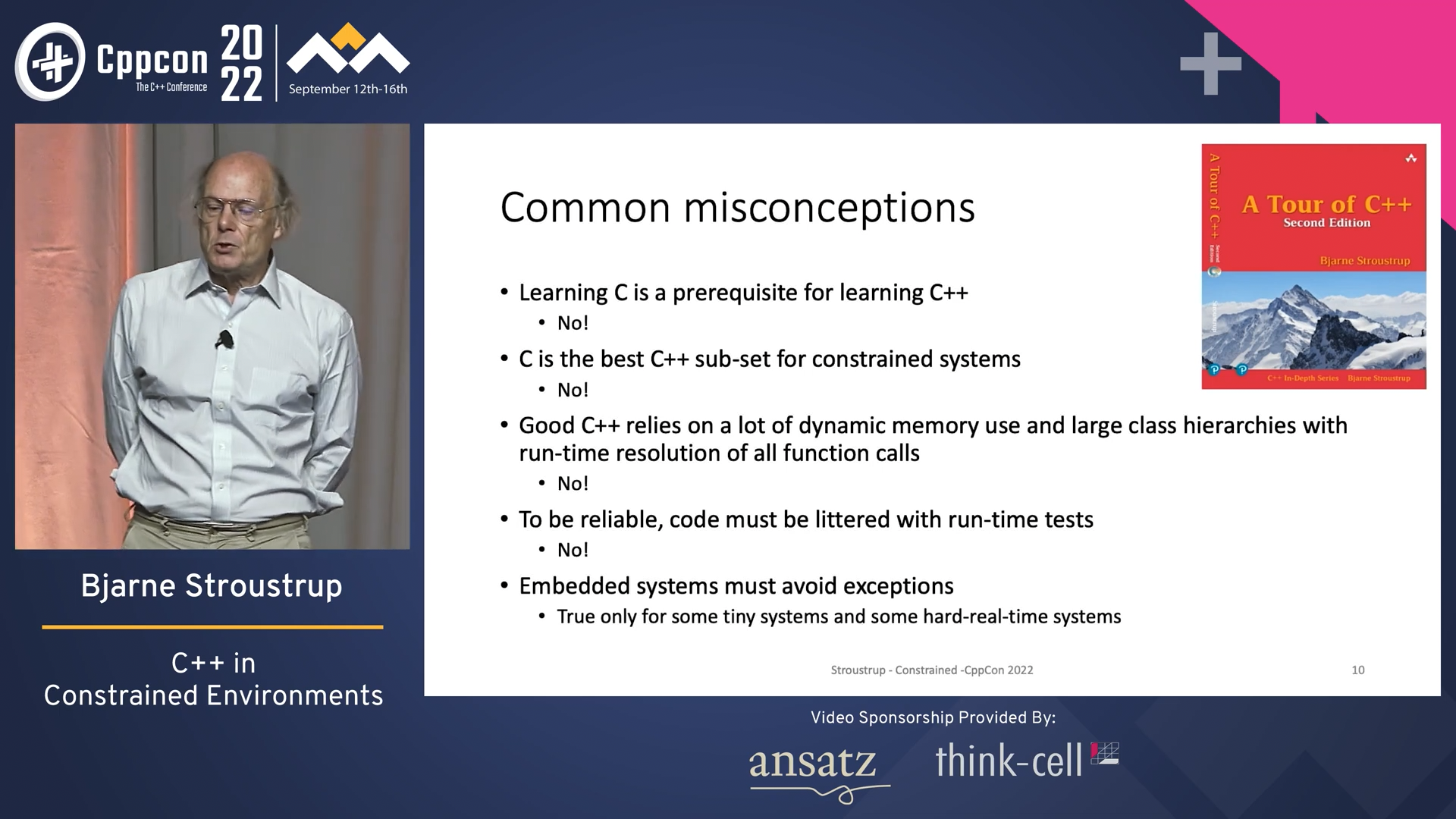
- Language serves the programmer, not the other way around. Use as many new features as it is sensible for your environment.
- Don’t optimise every line of code – measure, then tune.
- C and C++ map directly to hardware, thanks to the genius of Dennis Ritchie.
- C++ machine is itself an abstraction.
- Make every construct checkable, so that rules are expressed in the code. Static checking can be difficult or impossible, run-time checking can be expensive.
- Use immutable data – protect against data races.
- Initialise your data.
- Zero-overhead: leave no room below C++. Doesn’t mean “zero-cost”.
- Resource management: RAII.
- Move work from run time to compile time.
- With modern C++ you can avoid falling back to C-style C++ and unsafe practices.
- If you attempt to create a “safe” subset of C++ you end up having to write more code that has to be correct because you can’t use all the available language facilities. You can extend the language (STL, GSL) to avoid using unsafe techniques.
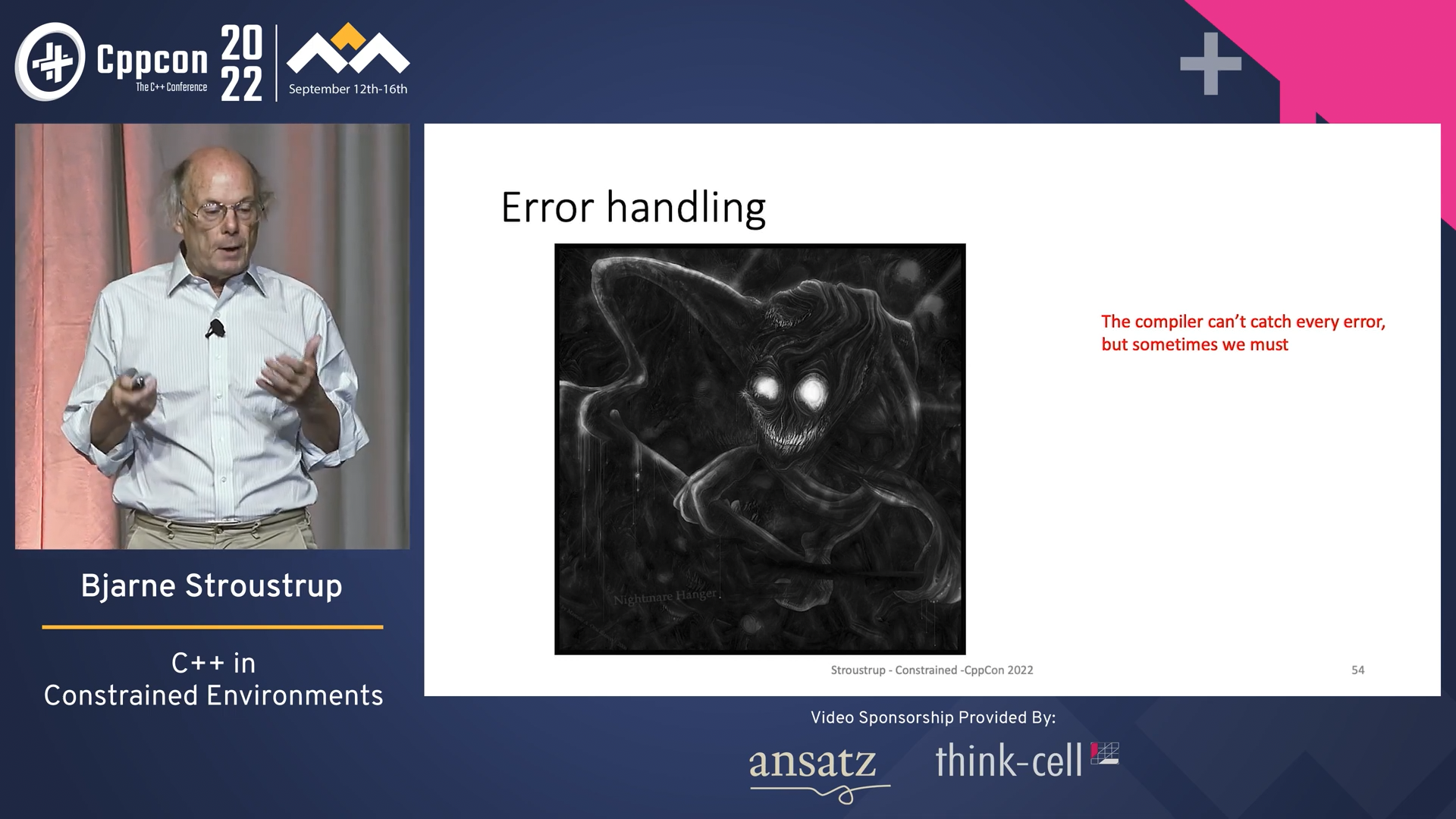
The error handling slide has a pretty terrifying picture, which checks out.
Don’t even dream of a single style of error handling for everyone supported by a single language construct.
- Exceptions: in constructors, operators, callbacks
- Return codes: in hard real-time code, when there are latency guarantees
- Crash/terminate: universal, if you can use it
- Exceptions are not zero-overhead, but neither are other error handling strategies. They can be zero-overhead on the happy path.
- Don’t litter code with
try/catch. - Don’t use exceptions for common failures that can be handled locally.
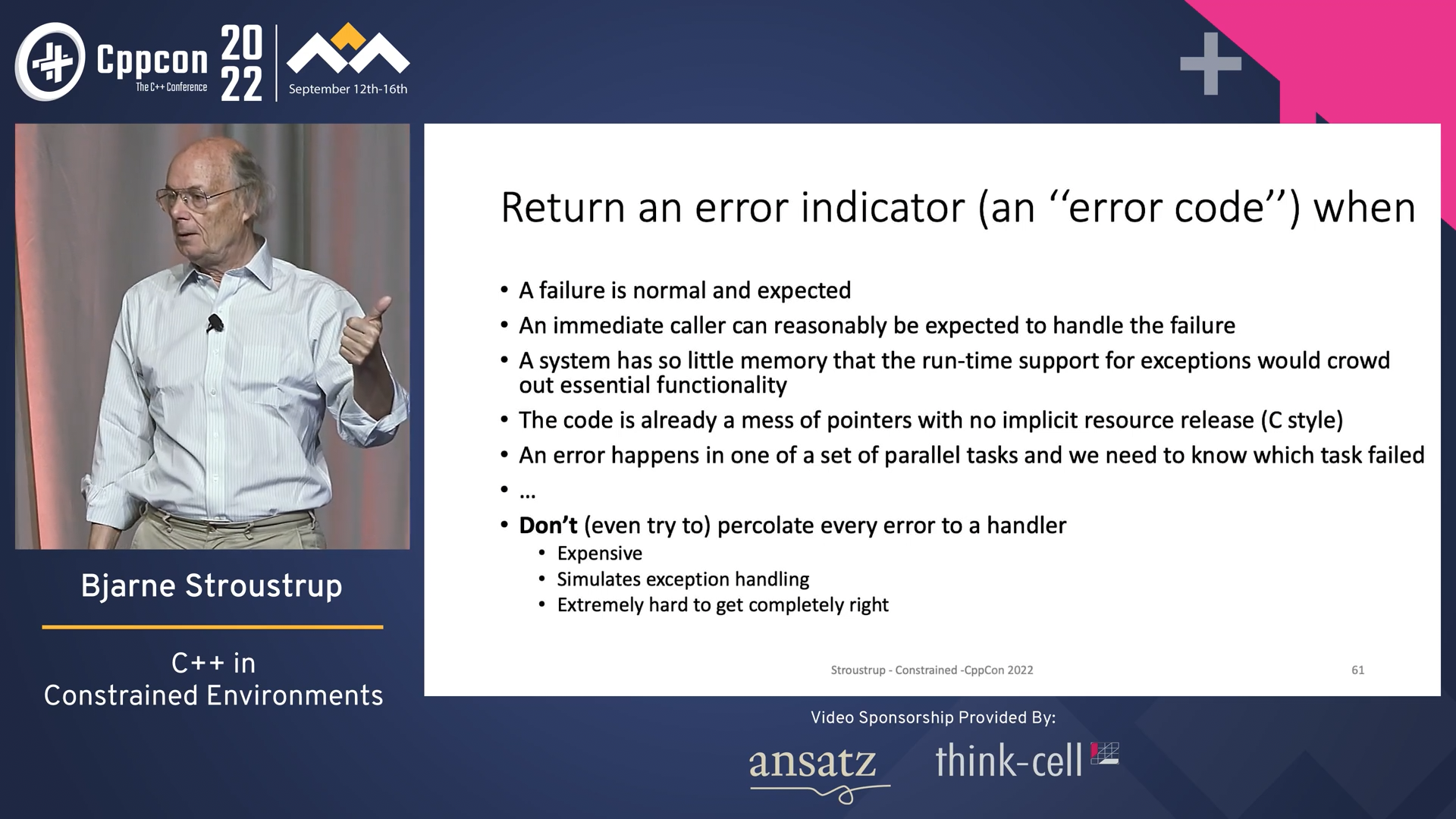
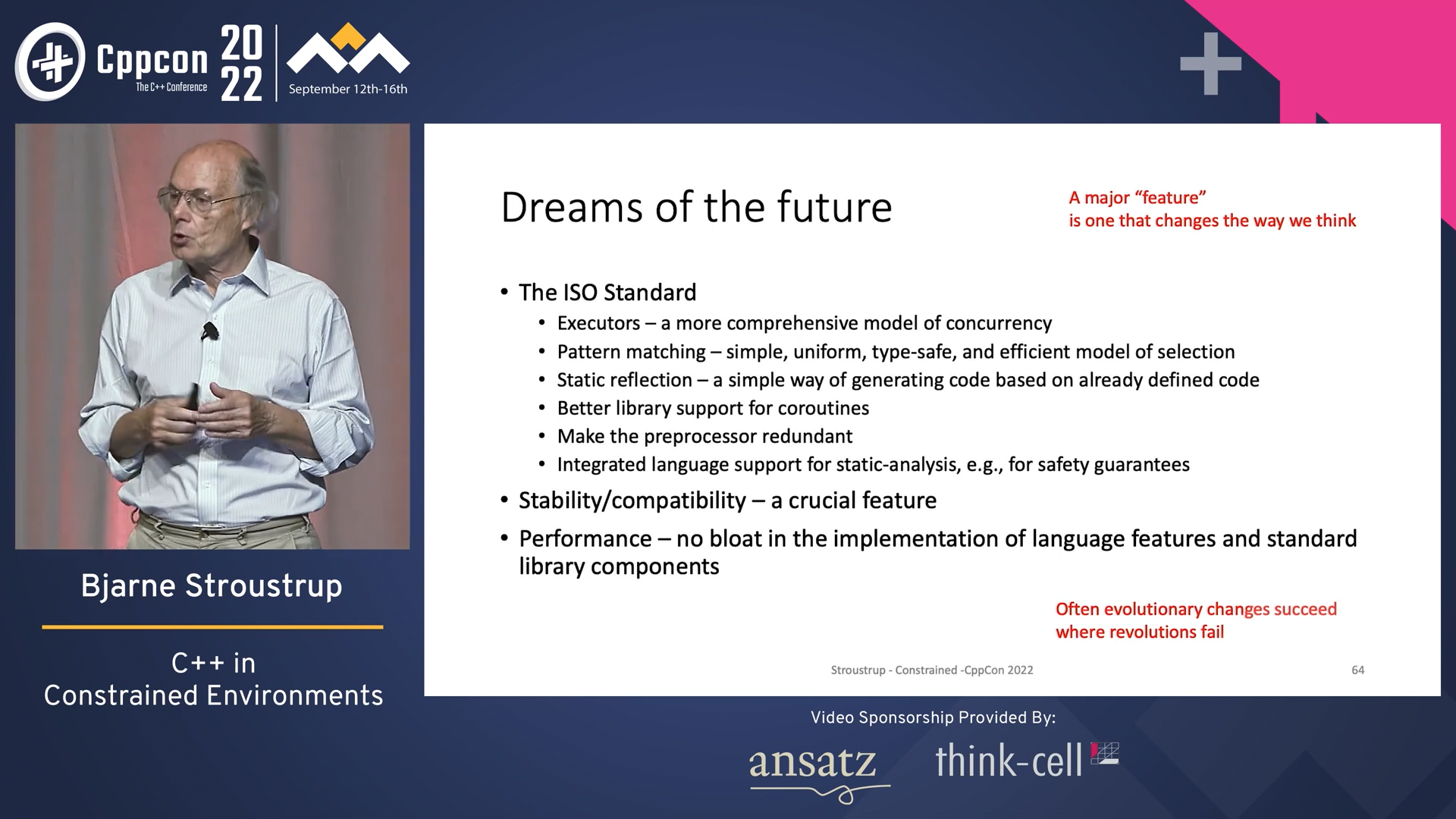
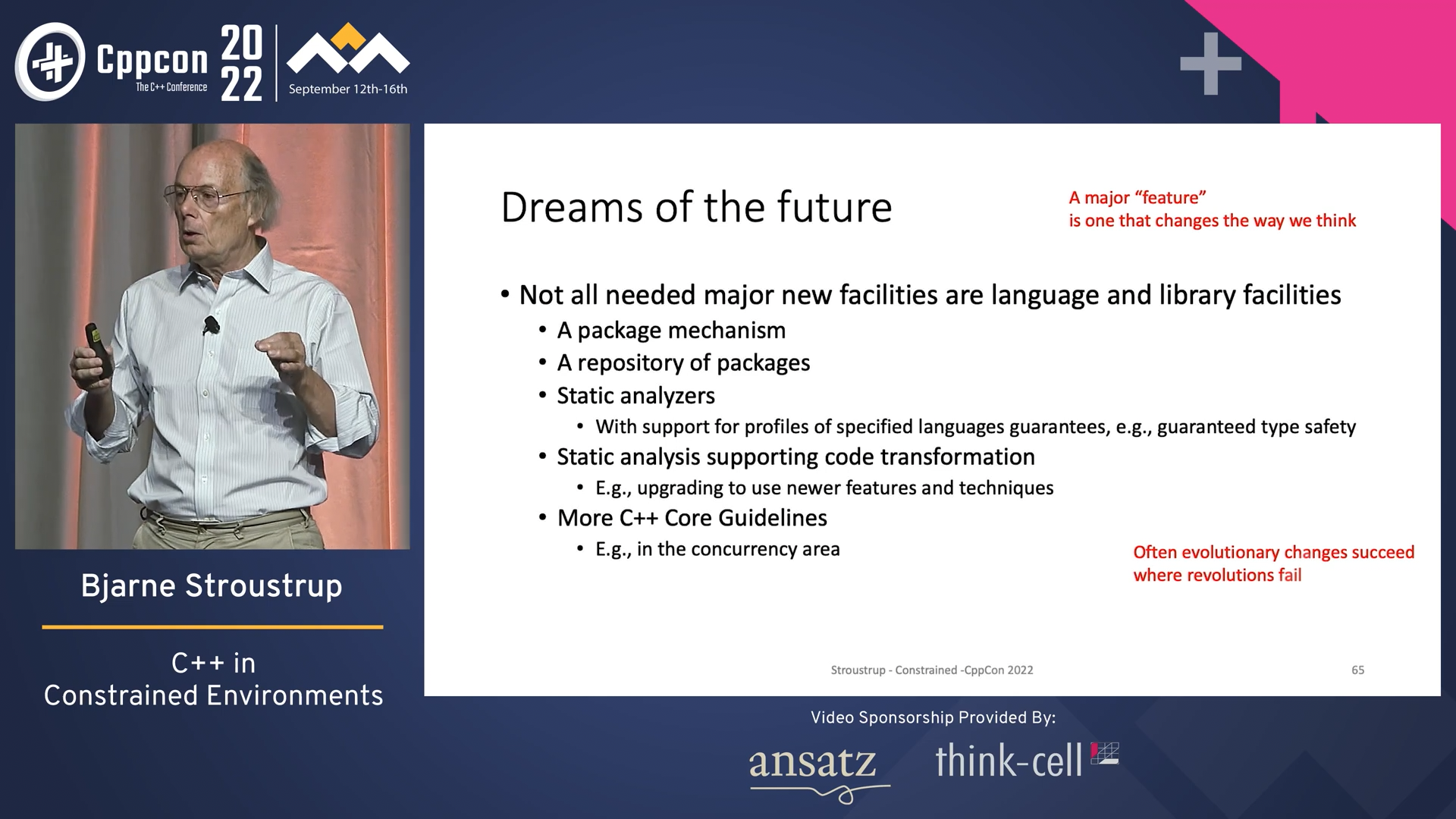
- Common package mechanism and repository – was that considered not suitable to be part of the standard?
- Static analysis with code transformation for code modernisation – that’s one of the goals of Carbon
Book: An Tour of C++, 3rd Ed.
C++2!! CppCon 2022: Herb Sutter - Can C++ be 10x Simpler and Safer?
This is Herb Sutter’s personal C++ evolution experiment. “The goal is to refresh C++ itself, not invent a new language”. The main idea:
Apply zero-overhead principle to backward compatibility: pay only if you use it.
A second syntax for C++, hmm… “If it doesn’t hurt a little, is it really C++?” He implemented his own major papers: metaclasses, value exceptions, parameter passing, and is/as pattern matching. I guess that’s one way of getting your paper into C++ (kind of).
Doesn’t this feel like TypeScript vs. JavaScript? Are we not going to end up with C++ being a ‘runtime’ language that nobody writes manually but instead use tools to generate it (see also: WASM)?

“What would Bjarne do?” (40 years ago)
- Bjarne Stroustrup wrote cfront: C++ -> C
- Herb Sutter wrote cppfront: C++2 -> C++
Let’s have a go at fragmenting C++!

Example:
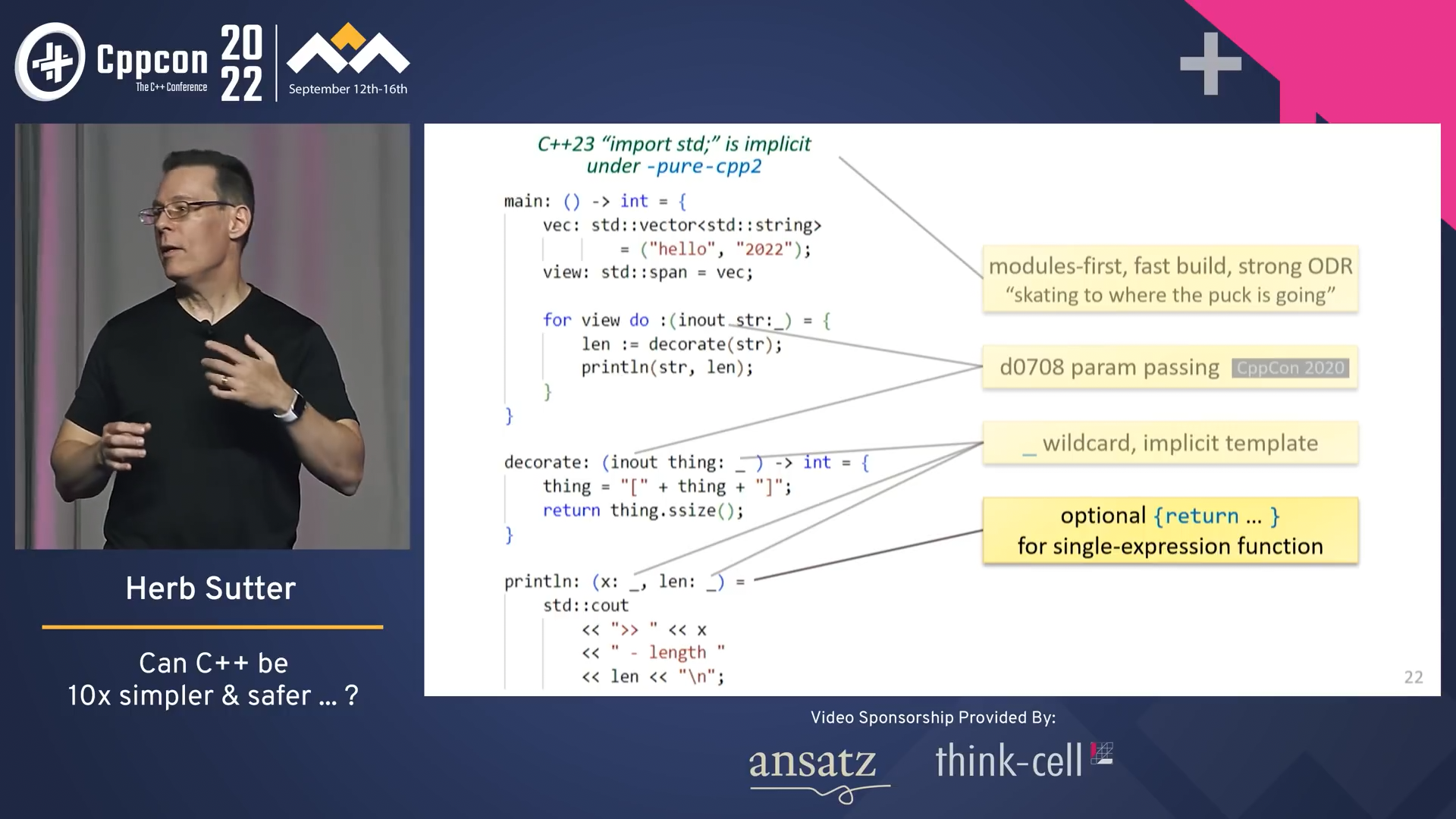
In Cpp2:
- Core Guidelines are the defaults
- left-to-right declarations:
name: type = value - no references (Herb really doesn’t like them, says they were introduced for parameter passing only)
- implicit
import std(modules-first design) _wildcard- optional
returnfor single-expression functions - lambda is declared the same way as a function, but omits the name => short lambda syntax
- order-independent syntax, no forward declarations
- no preprocessor! (in pure mode)
- automatically defined variables:
local_foo := func(), whoa, he really used:= - universal function call syntax:
vec.ssize()->std::ssize(vec)(also helps IntelliSense) - all type casts done via
as unionnot supported- all variables are initialised before use;
nullptris not supported - no pointer arithmetic
deleteand owning raw pointers are not supported- unary operators are suffixes: to get an address, follow the expression with
& - contracts!!
- parameter passing:
outparameters (weren’t they discouraged? it looks like a regression from returning values…), also:copy,inout,move, andforwardinparameters are automaticallyconst, and you don’t need to choose between passing by value or by reference (hi Carbon)
- variable capture using
$for lambdas, post-conditions, and string interpolation
In the generated C++ code:
[[nodiscard]]is the default- auto-generated forward declarations
- human-readable
- uses
namespace cpp2:-)
Safety:
- Cpp2 compiler implements optional bounds checking
Gradual improvement/migration:
- C -> C++: .c -> .cpp -> OK (mostly)
- JavaScript -> TypeScript: .js -> .ts -> OK
- C++ -> C++2: .cpp -> .cpp2 -> OK (goal)
Plans:

Summary of problems solved by Cpp2:

Godbolt already supports cppfront.
Links:
- Reddit 1
- Reddit 2
- Reddit 3
- Reddit 4
- Reddit 5
- Reddit: What problems do you want CppFront to tackle?
- GitHub
September WG21 committee mailing
Papers
- P0792R11
function_ref: a type-erased callable reference - P0957R9 Proxy: A Polymorphic Programming Library
- P1985R3 Universal Template Parameters
- P2586R0 Standard Secure Networking
- Niall Douglas is not mincing words regarding P2300 Executors proposal.
- P2637R0 Member
visitandapply - P2639R0 Allowing allocation in static initialization
C++23 status
Steve Downey has a page with all the currently approved changes in C++23.
Natalie Silvanovich writes:
Don’t let the perfect be the enemy of the good. Don’t let the good be the enemy of the okay. Don’t let the okay be the enemy of the kinda works maybe
Mention
C++ Club got mentioned on Reddit, woohoo!!